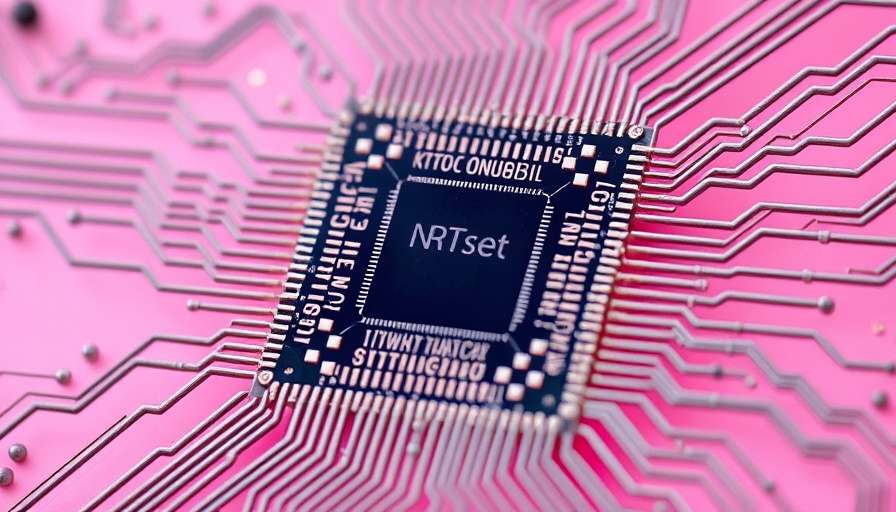
The Dawn of a New Era: Biological Computing
In the heart of a British laboratory, scientists are pushing the boundaries of technology and biology by developing what they call a biological computer. Unlike traditional computers made from silicon, these revolutionary devices utilize living organisms to process information, paving the way for unprecedented advancements in artificial intelligence and computing efficiency.
Understanding the Fundamentals of Biological Computing
Biological computers operate on principles fundamentally different from those of their electronic counterparts. Instead of binary code, they use biological molecules which can perform calculations. The innovative lab leading this research aims to harness the power of synthetic biology, where DNA is manipulated to create circuits that can mimic computing functions.
A Glimpse into the Lab's Goals and Future Prospects
The lab’s prime mission extends beyond mere experimentation; it aims to revolutionize how computations are performed by integrating biological systems that can learn and adapt. By doing so, they intend to contribute solutions to some of humanity's most pressing challenges, including climate change and disease management. With venture capital funding increasingly flowing into biotechnology, the commercial potential of biological computers is becoming more apparent, echoing trends seen in Silicon Valley startups.
Implications for Business and Innovation
The emergence of biological computing not only reflects a shift in technological paradigms but also highlights surrounding business trends. As this innovation takes root, companies from various sectors, including healthcare and agriculture, may find new ways to leverage these advances. Entrepreneurs in the Bay Area, noted for their adaptability and willingness to integrate cutting-edge technology, could potentially harness biological computing to formulate business growth strategies that prioritize sustainability.
Challenges and Counterarguments
Despite the promise biological computers hold, challenges remain. Critics argue about the ethical implications of manipulating life forms for technological gain. Furthermore, there are concerns regarding the scalability of such technology and its reliability compared to conventional computing methods. Engaging in these discussions is vital for fostering a responsible approach to innovation that prioritizes corporate governance and sustainability.
Real-World Applications and Market Relevance
Real-world applications of biological computing are already beginning to emerge. From enhancing diagnostic tools capable of making accurate predictions in healthcare to improving supply chain efficiencies through smart biological sensors, the potential for this technology in different markets is expansive. As businesses explore e-commerce news and advancements in digital transformation, biological computing could become a pivotal component of future business models.
The Local Impact: Bay Area Entrepreneurs and Biological Computing
Bay Area entrepreneurs are ideally positioned to exploit the opportunities presented by biological computing. In an area renowned for its innovation and venture capital funding, startup ecosystems are rapidly adapting to include developments in biological technology. As research continues to unfold, understanding the implications for employment trends and business regulations in this evolving landscape will be vital for local businesses seeking to remain competitive.
Conclusion: The Path Ahead
As we stand on the brink of a technological revolution led by biological computing, the potential impacts on industries are profound. The evolution of this remarkable field will undoubtedly shape how businesses operate, influence economic forecasts, and may redefine the landscape of corporate partnerships. To stay informed and remain at the forefront of innovation, readers are encouraged to explore trends and news surrounding this exciting frontier.
 Add Row
Add Row  Add
Add 



Write A Comment